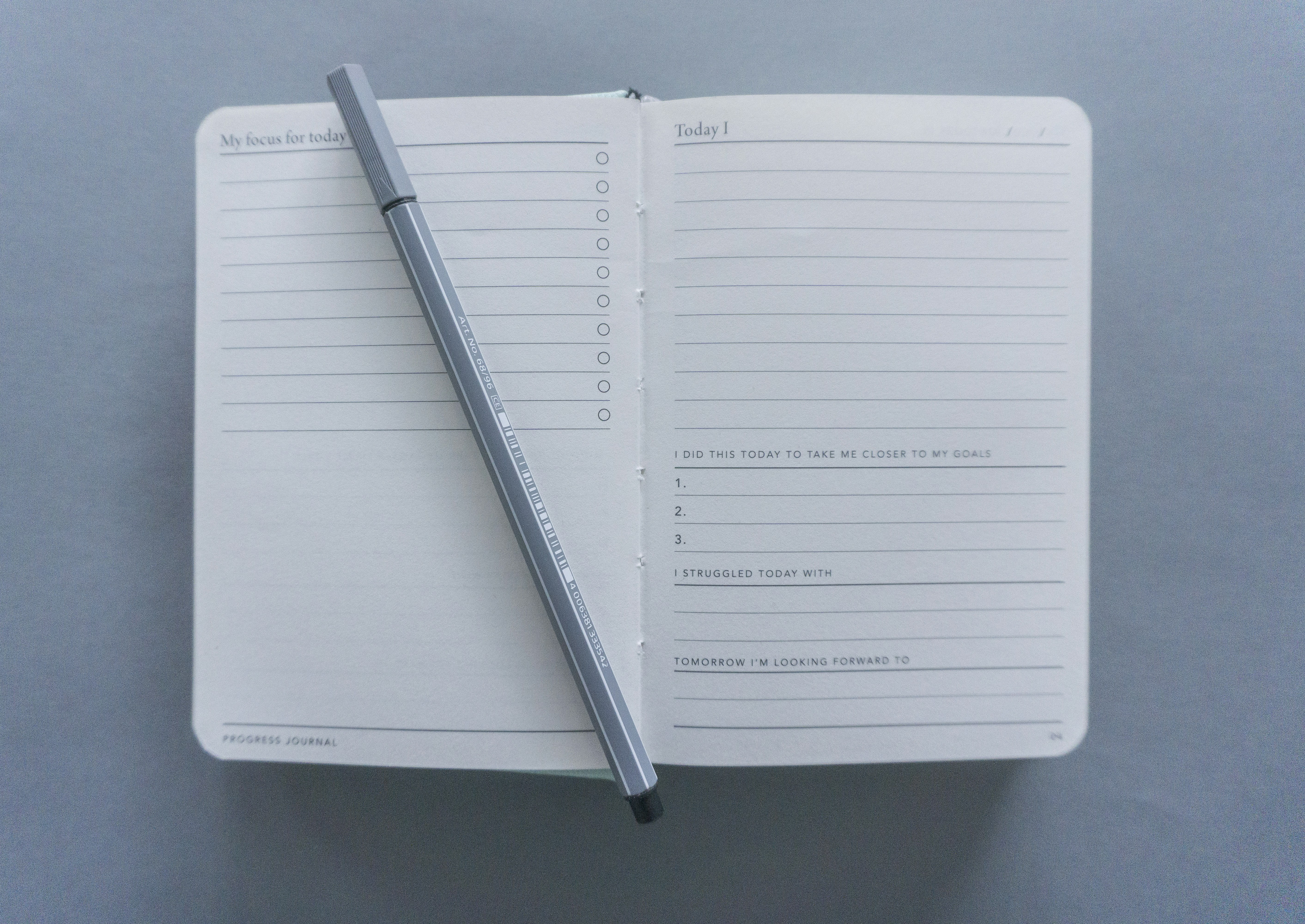Why to implement good habits and how to do it. A list of examples of good habits for different areas of life. Tips and recommendations that can help.
Systematicity is the key to success. And having good habits will help change life for the better, make us more successful and become a better version of ourselves.
We all have ideas for better routines and habits that we would like to implement. But one idea can be not enough. In this article, we have prepared some tips on how to implement good habits.

How it works
Habits are regular actions that have become part of our daily life and are most often performed without much effort. You just do something automatically without thinking about the effort involved. Drinking coffee, brushing your teeth - these actions don't make you work hard, you just do them.
Obviously, there are useful and harmful habits.
The peculiarity of habits is that most often their result is long-term. That is, their effects can only be seen in the long term. But these little things are what life is made of. And from them depends on what this life will be later.
Everyone has bad habits to a greater or lesser extent. You should minimize them, but you should not strive for an unattainable ideal - sometimes those very guilty pleasures can save you from burnout. It's like with medicines: the benefit should exceed the harm.
But what you should do is to level the influence of bad habits and compensate them with useful ones. If you love candy, love sports.
Keep in mind that 21 days to form a habit is a myth. Or rather, this data is not very accurate. Three weeks is the minimum, provided that the habit is pleasant and simple. It will most likely take up to six months to get into a new rhythm of life and implement something worthwhile! So aim for a long run.
Tips for building habits
Useful habits should be introduced gradually - one or two every two weeks. If from tomorrow you abruptly change the whole habitual way of life, you will quickly get tired and abandon it. So be consistent, don't overstretch yourself.
It's worth saying that it will get easier over time. For example, once you get used to evening jogging, you'll sleep better. Consequently, it will be easier to introduce a normal sleep schedule. Discipline in one area breeds discipline in general.
Slowly, you can improve the quality of your life, make a number of routine tasks easier, reduce your stress levels, and achieve what you want more easily. Repeat an action until it becomes a habit. You should perform it without thinking about it and without a significant effort of will.
You need a clear schedule to implement the habit. Someone prefers a printed paper habit tracker on the refrigerator. Someone uses online applications for this. It would be optimal to keep one planner for all to-do's. Get yourself a Trello-type calendar and put your current work and personal tasks there. And write your new habits as a separate item in your daily tasks - that's part of your schedule too, after all. Conveniently, in such calendars you can easily multiply the task and specify the frequency. For example, set a repeat for every Sunday “Yoga on the balcony”. Or for every day at 7 p.m. “10 minutes of cleaning.”

Try combining tasks. After all, if you look at it that way, everything takes time. But we are not robots and can not live clearly by the clock, it's hard. So you can add a useful habit to an existing one. For example, you cook eggs every day. At that time, you can listen to a useful podcast. And during an evening walk on your 10,000 steps, you may well call your grandmother or call a friend for a walk.
In general, to successfully implement habits, you need to pump up your time management skills first. Read about it separately in the article for freelancers.
Don't give up. The point is to do an action on a regular basis. But if you allow yourself to skip, the habit won't stick. And if you skip once and the motivation is gone, you won't make progress at all. So, try to stick to the plan. But if there is a force majeure and one day is missed - go on to your goal, do not go off the track.
Reward yourself. For good habits and for the results they bring. This works as a double bonus - as positive reinforcement and as motivation. For example, a habit of eating well and exercising will get you in better physical shape in a few months. Reward yourself for it with some nice new clothes.

List of good habits for inspiration
Try to analyze in which areas of your life you lack balance. And work first of all on implementing good habits exactly in the weak areas.
Relationships
Social connections are important. Humans are not made to live alone. And we should work on relationships just as much as we work on other aspects of life. Here's what you can do:
- Plan family dinners once a month.
- Buy gifts for loved ones in advance or without an occasion.
- Make a habit of seeing friends at least once every two weeks.
- Call your family. Especially the elderly.
- Go on dates with your soul mate. Even if you have been living together for 15 years.
Health
Prevention is always better than cure. And health is worth taking care of before old age takes its toll.
- Keep a sleep schedule - many recommend getting up early, but we know that not all freelancers like that. But it's worth waking up at the same time and allocating 8 hours for sleep.
- Drink enough clean water.
- Brush your teeth well. And go to your dentist for a routine checkup.
- Annual check-ups - and go to the doctors in general, don't be afraid. At least get some tests.
- Eat fruits and vegetables every day.
- Do exercise, play sports, or at least walk briskly for at least an hour a day.
- Go out for lunch - a break in the middle of the day is good for mental health. Come up with fun activities for just 1 hour and stick to the plan.
- Beauty. Probably each of us has at least one point about our appearance. Promise yourself to work on it for 10 minutes a day. Hair or face mask, abs exercises, heel scrub, self-massage - it's up to you.
Routine
Organizational habits can change and make life a lot easier. Routines won't be consuming if you do a couple small actions every day.
- 10 minutes of cleaning every day is about like watching 10 videos on TikTok. But it will help keep your place clean all the time, trust me.
- Digital order - take 10 minutes a day to sort through photos, files, emails, notes. And soon enough you'll be rid of the mess on your phone and computer.
- Wash the dishes right away. Especially after the buckwheat.
- Declutter once a month - go through that far drawer or closet or shelf of expired cosmetics. Throw away/sell/give away what you don't use.
Finance
The question is a slippery one, everyone's situation is different. But there are opportunities for helpful habits in this category, too.
- Pay your bills on time - if you rent, this is a necessity. But if there is an opportunity to put off paying rent/utilities, it's best not to take advantage of it. You never know what's going to happen tomorrow.
- Put automatic payments on everything you can. This will ensure you don't end up without internet and cell phone service, prepaid subscriptions to work tools and Netflix, after all. If there's no autoschedule option, put a reminder on your calendar.
- Invest. Yes, even in times of crisis and war. As cynical as it sounds, you can find some pretty lucrative investment options right now.
- Set aside. Even if it's just two or three dollars a day. And on good days, a little more. But in your piggy bank will slowly grow the amount. And if there is an opportunity to open a substantial deposit or retirement account - do it without fail.
- Control your spending - you can download a special app for this. Review your spending, analyze and optimize it.
Personal and professional development
Remember what you are striving for. And write down in detail how exactly you are going to achieve it. Take it step by step every day.
- Set monthly and yearly goals, revisit them, plan and spell out ways to achieve them for each day.
- One skill each year. Get your driver's license, sit on a twine, take a massage or cooking class, learn to play the ukulele. But not all at once.
- Read. 15 minutes before bed, for example. Fiction or professional literature.
- Set a schedule - this will help you be more disciplined and not overwork yourself.
- Remove distracting apps - games, online stores with constant notifications, some social media. You can go there as needed. But you don't need to be distracted all the time, it eats up your time and concentration.

Develop with purpose
Everyone knows that really successful people did not become such at the snap of fingers - they just had a habit of persistently and regularly doing something that others did not do. Stand your ground, go to the goal slowly, but stubbornly.
The key issue is motivation. Sure, a useful habit is a good thing. But if you do not see a specific goal, it will be very difficult to introduce new patterns of behavior. Therefore, you need to first of all sincerely want to change. Secondly, you need to logically understand what they are for. And set yourself clear concrete goals.
Focus on what's important. You can't be an Olympic champion, an exemplary large family man and a successful businessman at the same time. Choose what you need to do first. If your goal is to do a good job in UX/UI, then implement appropriate habits.
Listen to topical podcasts.
Read specialized literature on a regular basis.
Try a new tool every day.
Prepare a portfolio (e.g. one project per 2 weeks).
And learn, of course. With the online course “UX/UI Legend” there will be no problems with implementing the habit - there are deadlines, there's a schedule, there's group and mentor support. And a huge knowledge base that will allow you to become a full-fledged specialist after the training. Make up your mind!
